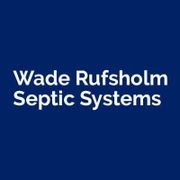
DO:
Know where your system is located—In case of an emergency, you’ll want to know where your tank is located rather than having to wait for the technician to locate it.
Reduce household chemicals—There is bacteria in your tank that break down waste material and washing harsh chemicals down the drain could kill off these bacteria, causing issues with the functionality of the system.
Avoid non-decomposable waste—Flushing materials that don’t break down on their own can cause issues with your septic system such as a clog or sudden overflow.
Use garbage disposal sparingly—Heavy usage can put a burden on your tank and cause future problems.
DON’T
Park vehicles on the septic system—Be sure to know where your septic tank is located and make an effort to keep all vehicle traffic off the tank, pipes, and drain field area. Pressure from vehicles driving/parking on top of these areas can damage the system, which could mean expensive repairs.
Plant anything close to the drain field and septic tank—Roots from plants like trees, bushes, flowers and vegetables can find ways to get to the nutrient-rich wastewater inside the pipes and break through them
About the Business
Have a question? Ask the experts!
Send your question

